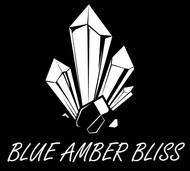Dominican Blue Amber vs Sumatra’s Secret Treasure – Same Gem Quality, Worlds Apart in Fame
1 | Why Compare These Two Blue Ambers?
Both Dominican and Sumatra deposits produce the only known blue amber that flashes cobalt under UV light, yet one is a jewellery-store staple while the other sits in niche collector chats. This guide unpacks the reasons for that gap and shows why quality is a dead heat—even if recognition isn’t.
2 | Dominican Blue Amber – Popularity Built Over Decades
2.1 Early Discovery & Tourism
-
1930s–50s: La Cumbre miners found honey-amber pebbles with rare blue flashes.
-
1980s–90s: Cruise-ship excursions and Amber World Museum tours turned “Dominican blue amber” into a Caribbean must-buy.
-
Result: Continuous supply, press coverage, and easy airport access cemented the gem in mainstream consciousness.
2.2 Marketing & Research Momentum
-
GIA and academic papers on Hymenaea protera inclusions gave Dominican amber scientific prestige.
-
Jewelers leveraged that authority in catalogs, reinforcing the idea that Dominican equals “premium.”
3 | Sumatra Blue Amber – Exotic, Rare, Under-the-Radar
3.1 Recent and Sporadic Mining
-
Attention on Sumatran blue amber only surfaced in 2012.
-
Pieces appear as < 1 % of rough extracted from deep coal seams in the Bukit Barisan range.
-
Monsoon seasons and seismic terrain interrupt artisanal digging, limiting global output.
3.2 Logistics & Authentication Hurdles
-
Remote jungle roads raise export costs; fewer gem labs own reference spectra for Sumatra material.
-
Skeptics confuse genuine stones with dyed copal, dampening wider market confidence.
3.3 Visual Upside
-
Daylight cobalt glow often shows without UV thanks to higher perylene content.
-
Thick nodules (> 500 g) allow statement carvings a Dominican pebble can’t match.
4 | Quality Showdown: Geology, Optics, Durability
| Metric | Sumatra Blue Amber | Dominican Blue Amber |
|---|---|---|
| Age | 23–30 Ma (Miocene) | 16–20 Ma (Miocene) |
| Source trees | Dipterocarpaceae + Hymenaea mix | Hymenaea protera |
| Fluorescence | Strong cobalt—even in sunlight | Bright blue, needs UV |
| Typical nodule size | 10 g – 1 kg | 2 g – 300 g |
| Mohs hardness | 2 – 2.5 | 2 – 2.5 |
| Inclusion density | Few but dramatic | Numerous, diverse |
Bottom line: Lab tests show identical hardness and polymer structure; differences lie in daylight glow strength and nodule mass—not in intrinsic gem quality.
5 | Market Dynamics – Supply vs Perception
5.1 Availability & Pricing
-
Dominican: Steady output; museum-grade cabs fetch $80–100 / g.
-
Sumatra: Volatile supply; daylight-glow rough runs $90–120 / g, reflecting rarity.
5.2 Brand Recognition Curve
-
Decades of tourism marketing = immediate buyer trust in Dominican stones.
-
Sumatra must overcome limited lab data and counterfeit fears before catching up.
6 | How to Choose the Right Blue Amber
-
For daylight wow-factor – pick Sumatra blue amber; fluorescence shows even under a phone flashlight.
-
For fossil inclusions – Dominican specimens excel with ants, termites, and botanical fragments.
-
For large carvings or beads – Indonesian rough provides thicker, crack-resistant blocks.
-
For proven resale history – Dominican blue amber enjoys broader auction records.
7 | Myth Check
| Claim | Truth |
|---|---|
| Dominican amber is harder. | False – both test 2 – 2.5 Mohs. |
| Sumatra blue amber is dyed. | False – perylene hydrocarbon causes natural glow; dyed copal shows patchy purple. |
| Baltic “blue amber” is the same. | False – Baltic pieces are heat-treated; natural cobalt fluorescence occurs only in Dominican and Sumatra deposits. |
8 | Key Takeaways
-
Popularity ≠ Quality: Dominican fame stems from history and marketing, not superior gem chemistry.
-
Sumatra’s edge: rarer output, larger nodules, and daylight fluorescence earn it “exotic treasure” status.
-
Smart buying: match your purpose—tourist memento, fossil study, or bold design—to each deposit’s strengths.


